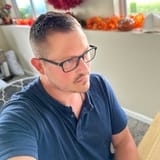Debunking the Myth: Lifelong Learning and Adaptability in Older Adults
Lifelong learning and adaptability decreases the rate of decline in aging adults.

The saying “old dogs can’t learn new tricks” is often mistakenly applied to older adults, suggesting a decline in their ability to learn and adapt. I will refute that myth by presenting scientific evidence and encouraging a fresh perspective on aging and neuroplasticity.
Neuroplasticity continues throughout life, allowing the brain to form new neural connections. Research by Dr. Denise Park from the University of Texas suggests that engaging in new and complex activities can enhance cognitive function in older adults. This challenges the misconception that neuroplasticity wanes significantly with age.
Studies show that older adults can and do learn new skills effectively. For instance, a study [1] by Patricia A. Boyle and colleagues from Rush University Medical Center demonstrates that lifelong learning activities are associated with a slower rate of cognitive decline in the elderly. This evidence supports the idea that educational and skill-building opportunities should not be restricted by age.
The perception of aging plays a crucial role in cognitive health. A study led by Becca Levy at Yale University found that older adults with positive self-perceptions of aging had better memory and cognitive function. Environmental support is also critical; community programs and educational workshops tailored for older adults can significantly enhance their engagement and learning outcomes.
The myth that older adults are incapable of learning new skills is debunked by ongoing research and real-world examples. Recognizing and supporting the potential for lifelong learning can lead to a healthier, more inclusive society that values contributions from individuals of all ages.
In my field, I am constantly bombard by the idea that you can't expect the aging population to understand technology. I believe that trope is a cultural barrier that treats the aging as less-than and needlessly deepens the digital divide between generations. If the aging population believes that about themselves, they can create self-fulfilling prophecies about themselves that limit their interactions with technology.
Share your stories of learning and growth at any age. Let’s embrace and promote a culture of lifelong learning that defies ageist stereotypes and celebrates continuous personal development.
For the logged in subscribers of this self-publication, I've turned on commenting. Feel free to join and share your story in the comments.
[1] Doctor Boyle has authored nearly 300 studies. At the time of publication, I've reached out to her via email to ask her if she'd like to highlight a specific work of hers. I'll update this article to include a specific study she may want to highlight so her work is represented accurately.





